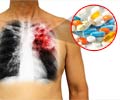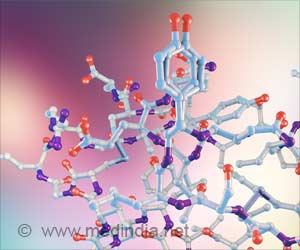If patients suffering from chronic obstructive pulmonary disease (COPD) were treated with antibiotics at an early stage, they showed more improvement compared to those who received the treatment later

"Guidelines recommend antibiotic therapy for acute exacerbations of COPD, but the evidence is based on small, heterogeneous trials, few of which include hospitalized patients."
Michael B. Rothberg, M.D., M.P.H., of Baystate Medical Center, Springfield, Mass., and colleagues conducted a study at 413 acute care facilities throughout the United States, between January 2006 and December 2007, for patients suffering from acute exacerbations of COPD.
Of 84,621 patients, 79 percent received at least 2 consecutive days of antibiotic treatment. The factors studied were the initiation of mechanical ventilation after the second hospital day, inpatient mortality, or readmission for acute exacerbations of COPD within 30 days of discharge; length of stay, and hospital costs.
The researchers found that compared with patients not receiving antibiotics in the first 2 days, antibiotic-treated patients were less likely to receive mechanical ventilation after the second hospital day.
Also, patients treated with and without antibiotics had similar lengths of stay, but patients treated with antibiotics had lower costs.
Advertisement
Identifying COPD patients, who do not have a bacterial etiology for their exacerbation, is difficult because sputum cultures do not distinguish between active infection and colonization.
Advertisement
The study appears in the May 26 issue of JAMA.
Source-ANI
RAS















